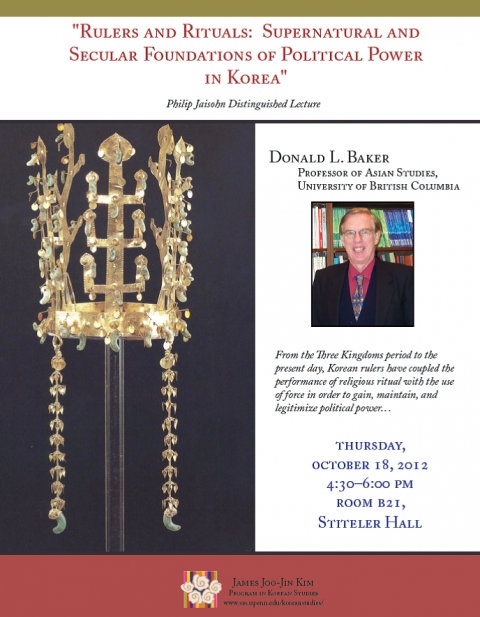
Stiteler Hall, Room B21
Donald L. Baker, Professor of Asian Studies, University of British Columbia
An ancient Chinese text, the Zuozhuan commentary to the Chunqiu [Spring and Autumn Annals], states that “the great affairs of a government are force and ritual.” Koreans over the centuries have taken that message to heart. From the Three Kingdoms period to the present day, Korean rulers have coupled the performance of religious ritual with the use of force in order to gain, maintain, and legitimize political power. Pre-modern governments were predatory governments, run more for the benefit of the rulers than for the benefit of the ruled. It was therefore necessary for them to use both force and ritual to get the ruled to accept their subordinate position. However, even in the modern age, despite the need for governments today to abandon their previous openly predatory character in order to win popular support, we can still find evidence of Korean recognition of the political power of religious ritual.
 James Joo-Jin Kim Center for Korean Studies
James Joo-Jin Kim Center for Korean Studies